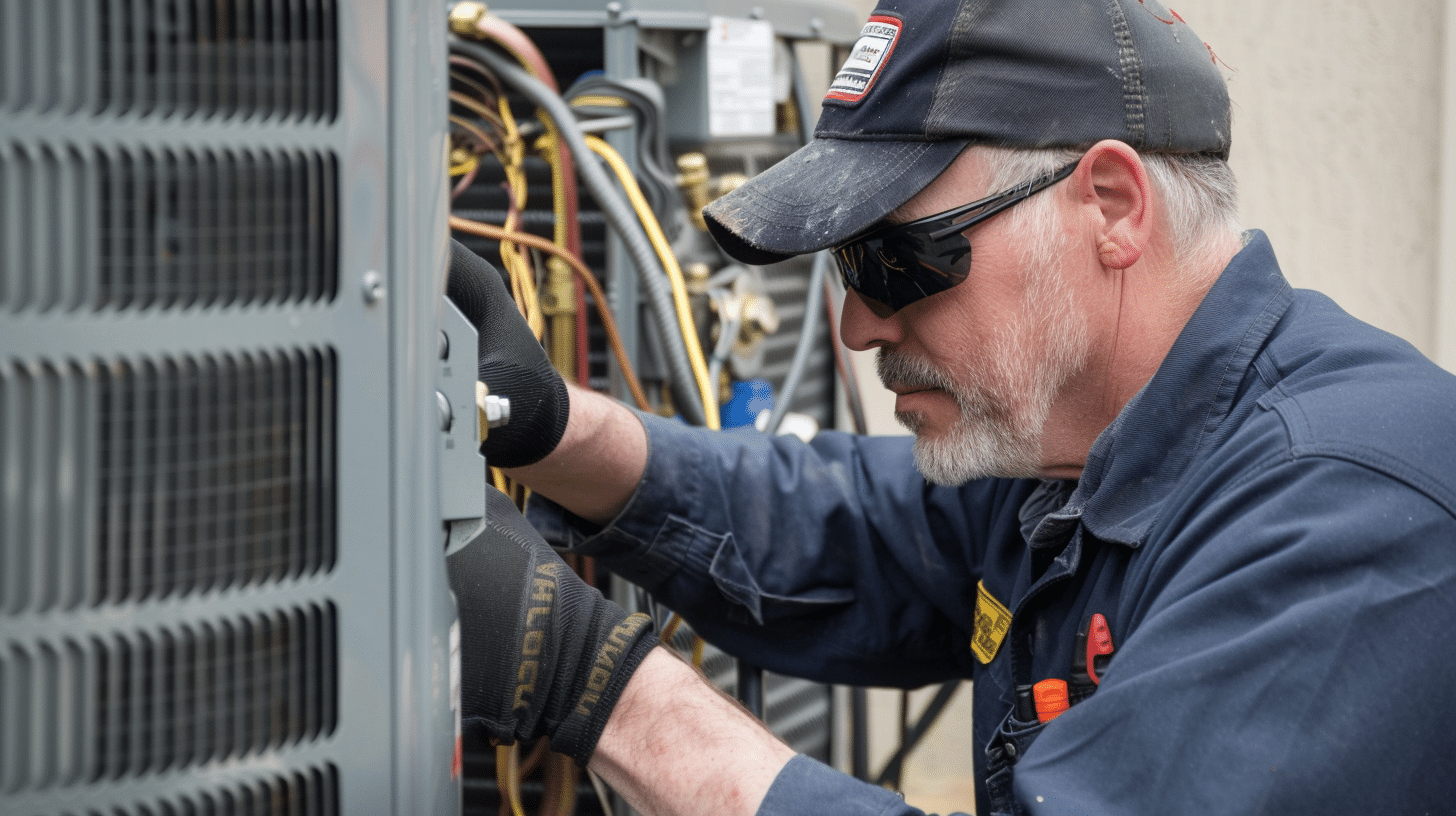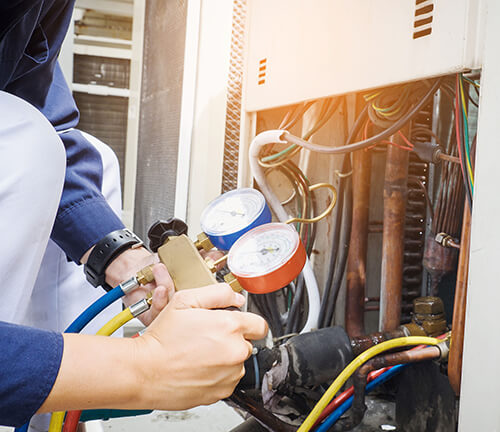Understanding Heating And Cooling: A Comprehensive Overview to Home Heating, Ventilation, and Air Conditioning Solutions
In today's quickly advancing globe, a fundamental understanding of heating and cooling systems is no much longer a high-end however a need for ensuring ideal indoor settings. This overview uses an extensive exploration of air, heating, and air flow conditioning solutions, demystifying the intricate interplay of components that control comfort and efficiency. As we navigate through the intricacies of choosing the right system and maintaining it for peak efficiency, one starts to realize the profound impact these systems have on power usage and sustainability. What common risks could be threatening your cooling and heating system's possibility without your understanding?
Fundamentals of HVAC Solutions
Home Heating, Ventilation, and A/c (COOLING AND HEATING) systems are essential parts in modern-day design, continually making sure optimal indoor air top quality and thermal comfort. These systems are indispensable to preserving the health, performance, and well-being of occupants in residential, commercial, and industrial setups. At their core, heating and cooling systems are developed to control the temperature, moisture, and sanitation of air, developing a comfortable setting despite external climate conditions.
The basic elements of a HVAC system consist of heating systems, air flow ducts, and air conditioning units. The burner typically entails either a heater or a warmth pump, which heats air to be flowed throughout the building. Air flow, an important facet of the system, includes the exchange of outside and interior air, lowering indoor contaminants and managing wetness degrees. This process can be naturally or mechanically assisted in, often making use of followers and ductwork to disperse air successfully.

Choosing the Right Heating And Cooling System
Selecting a cooling and heating system entails a cautious equilibrium of suitability, cost, and effectiveness to the specific needs of a building. The option procedure starts with an evaluation of the structure's size, design, and meant use. Larger structures might require more durable systems, while household buildings might benefit from smaller, more energy-efficient versions. It is necessary to consider the climate of the area, as this will certainly affect the kind of system that best keeps comfortable interior temperatures throughout the year.
Energy performance ratings, such as SEER (Seasonal Power Effectiveness Ratio) for ac unit and AFUE (Annual Gas Utilization Performance) for heaters, are critical aspects when evaluating prospective systems. Higher ratings normally show far better performance and lower operating expense in time. In addition, possible purchasers should compare in advance prices with potential long-term cost savings to identify the very best monetary option.
One more essential consideration is the kind of system-- whether a centralized system, split system, or ductless mini-split is proper. Each offers distinct benefits and constraints, based on installment complexity and area requirements. Assessment with heating and cooling experts is suggested to make certain that the system chosen lines up with both the structure's specifications and the owners' convenience choices.
Value of Routine Maintenance
As soon as the appropriate a/c system find out is chosen and installed, maintaining its effectiveness and longevity ends up being a concern. Routine upkeep is important for making sure that the system operates at peak efficiency, minimizing the risk of unanticipated breakdowns. Routine inspections and maintenance can determine prospective problems prior to they escalate into expensive repair work or replacements, thereby extending the life expectancy of the tools.

Furthermore, adhering to a maintenance schedule can maintain the warranty protection, as numerous manufacturers need proof of regular servicing to recognize service warranty insurance claims. Involving specialist cooling and heating service technicians for routine maintenance makes sure that all components are assessed properly and adjusted as needed. This aggressive strategy not only safeguards the financial investment in the HVAC system however also advertises a much healthier indoor environment for owners, improving overall health.
Enhancing Power Efficiency
To boost power effectiveness in heating and cooling systems, it is important to execute strategies that decrease energy intake while maintaining ideal efficiency. One effective technique is the assimilation of clever thermostats, which permit specific control over temperature settings based upon tenancy and time of day. These devices can find out patterns and readjust home heating and cooling down schedules accordingly, decreasing unneeded power use.
Another technique involves regular assessment and cleansing of heating and cooling elements, such as air filters, coils, and ductwork. Tidy systems run a lot more emergency air conditioning service effectively, as dirt and particles can obstruct air flow and force the system to work harder, consuming more energy. Ensuring correct insulation and securing is likewise important, as it protects against energy loss and lowers the tons on a/c systems.
Additionally, updating to energy-efficient devices, such as variable-speed motors and high-efficiency compressors, can considerably reduce power usage. These parts adjust their speed and outcome to match the details home heating or cooling down need, preventing energy waste.
Buying energy recovery air flow systems can also boost performance by trading warm in between outward bound and incoming jet stream, minimizing the requirement for additional home heating or air conditioning. By adopting these procedures, cooling and heating systems can accomplish exceptional power effectiveness, causing decreased functional prices and environmental impact.
Troubleshooting Common Issues
When dealing with A/c system malfunctions, a structured technique to troubleshooting can effectively recognize and fix common problems. Stopped up or filthy filters limit air movement, reducing system performance and might lead to overheating or cold.
Check the breaker and integrates; tripped breakers or blown fuses can halt system operations. Furthermore, take a look at the outside device for any obstructions or debris that could prevent efficiency. Normal maintenance of these components can protect against numerous common issues.
Listen for unusual noises, which might indicate mechanical problems such as damaged belts or motor issues. Unexplained increases in power bills can additionally indicate underlying inadequacies or leaks in ductwork. Make sure that all vents are open and unobstructed to help with optimal air flow.

Specialist intervention becomes necessary if these actions do not fix the concern, particularly for complex problems like cooling agent leakages or electric mistakes. Normal examinations and upkeep by qualified service technicians can preemptively address possible have a peek at this site problems, ensuring the heating and cooling system runs successfully and dependably.

Conclusion
In verdict, a detailed understanding of A/c systems is crucial for making sure optimal interior comfort and air top quality. Resolving common concerns with effective troubleshooting more makes certain the reliable procedure of HVAC systems, benefiting both property owners and businesses.
As we browse via the complexities of choosing the best system and preserving it for peak performance, one starts to realize the profound impact these systems have on energy usage and sustainability.Home Heating, Air Flow, and Air Conditioning (HEATING AND COOLING) systems are essential components in modern-day design, regularly ensuring ideal indoor air high quality and thermal comfort (Brownwood TX HVAC Contractor).An additional essential factor to consider is the kind of system-- whether a centralized system, split system, or ductless mini-split is proper. Tidy systems operate much more efficiently, as dust and particles can obstruct air flow and force the system to work harder, eating more power.In conclusion, a thorough understanding of HVAC systems is important for making sure ideal interior comfort and air high quality